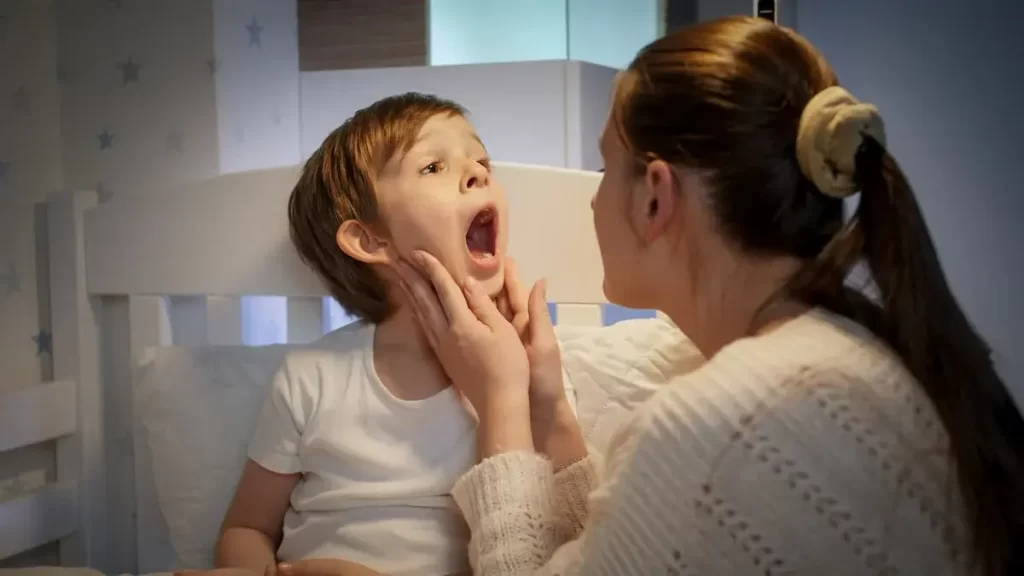As the saying goes, old habits die hard. We are aware of the importance of dental care and what role teeth play in our lives. You should understand how essential it is to get children on the right track about dental care right from the beginning. Initiating children into taking good care of their dental requirement can never be too early. As we start early on the way to dental care, your child will be well on the path of good dental health.
Baby teeth are followed by permanent teeth. If baby teeth are healthy, then we can expect permanent teeth to also be healthy. Some permanent teeth replace baby teeth well into their 13th year. In such cases taking good care of baby teeth is vital.
Our teeth are important not only to eat properly but they help us in speaking well because teeth are a part of apparatus used for speaking.
Steps for taking dental care of toddlers
It is vital that we teach good dental habits to our toddlers from the beginning. Once they are used to the dental routine to be followed in the morning and night, it becomes easier when they start their dental visits and go for dental check-ups.
Good habits
Good dental habits start with brushing teeth as soon as first tooth erupts. In some dentists advise brushing the toddlers gums before the teeth arrive. Gently brushing the gums will familiarize the toothbrush to him and the toddler will not be surprised when actual brushing begins when he gets his first tooth. You can use water on a soft baby toothbrush when using it on the gums. Some dentists advise using a soft cloth on the gums.
Regular dental visits
Regular visits to the dentists. When the baby is one year old, you must schedule his first visit to a friendly dentist. It is important for the baby to trust his dentist so that all future visits will not be fraught with fear. Taking the toddler to the dentist will also ensure good preventive care during his early years, which will save time and money in later years.
Brushing after teeth erupt
After one or two teeth have erupted, you must get the child to brush teeth twice a day. There are special baby tooth pastes available in the market for brushing the teeth of infants and toddlers.
Flossing
When more than two teeth appear you can start flossing the teeth of toddlers. You must learn the technique of flossing from your dentist. It is always safe to do brushing and flossing before going to bed. Make it a rule in your home for not eating or drinking any foods except water after brushing and flossing till next morning. If you make this rule and follow it regularly, it will stay with the child forever, and will help him taking good dental care throughout his life. Your dentist may advise you when to start mouth wash for your toddler. Do not start until your child has learned to keep the liquid in mouth and spit it out without swallowing it.
No napping with the bottle
It is not advisable to let the infant nap while the feeding bottle is still in his mouth. Even if it is juice or formula, it is best to remove it and clean his mouth before he is put to nap. If at all you have to give a bottle to your child during bedtime, make sure it is only water. Bacteria in grows quickly in the mouth if traces of sugar from the milk or juice remain in the mouth.
No sugary treats
It is a myth that juice is better and healthier option than milk for day long choice for the infant. 4 ounces of pure juice per day is sufficient for infants and toddlers. Non sugary foods and drinks at mealtimes are healthy than sugar based foods. Juices can be used as a special treat only.
Limit use of sippy cups
Sippy cups can be used sparingly. If your child is allowed to carry the sipper cup all day long, with juices in it, there is a danger of bacteria growing at the back of the front teeth.
What is tooth decay?
Infants and toddlers develop cavities due to tooth decay due to many reasons. The risk of decay starts as soon as babies get their teeth. Tooth decay occurs due to many factors which include the bacteria that reside in our mouth. If not taken care of soon, these bacteria start eating away at tooth enamel and cause pain and infection. If tooth decay is not controlled, it may cause damage to the underlying adult tooth. At the time of birth, baby teeth and permanent teeth are lined up in the jaw ready to erupt at the right time. When the baby teeth are decayed, the decay can go deeper and start eating away on the still not erupted teeth also causing irreparable damage.
What are the major causes of tooth decay?
The major reason for decay is sugary foods getting stuck on teeth and remaining in the mouth even after the infant has gone to sleep. Eating sugary foods as snacks at frequent intervals allows the bacteria to thrive on sugar which is left behind on teeth and in the mouth from the snack or juices.
Use of sippy cups filled with sweet juices or even baby bottles filled with formula for long periods are also major causes of tooth decay in infants and toddlers. When infants are allowed to go to sleep with bottles in the mouth, the sugar is available to bacteria to work on throughout the nap. The bacteria break down the sugar and produce acid which eats away at tooth enamel and roots of teeth.
When brushing of teeth is not done for the infant, the sugar in the mouth is not cleaned. The sugar stays back in the mouth which bacteria love. Bacteria produce acids as a by-product when feeding on sugars which damages teeth and roots of teeth creating cavities.
If you follow the earlier suggestions we have mentioned in this article, your toddler can have a healthy set of teeth.

